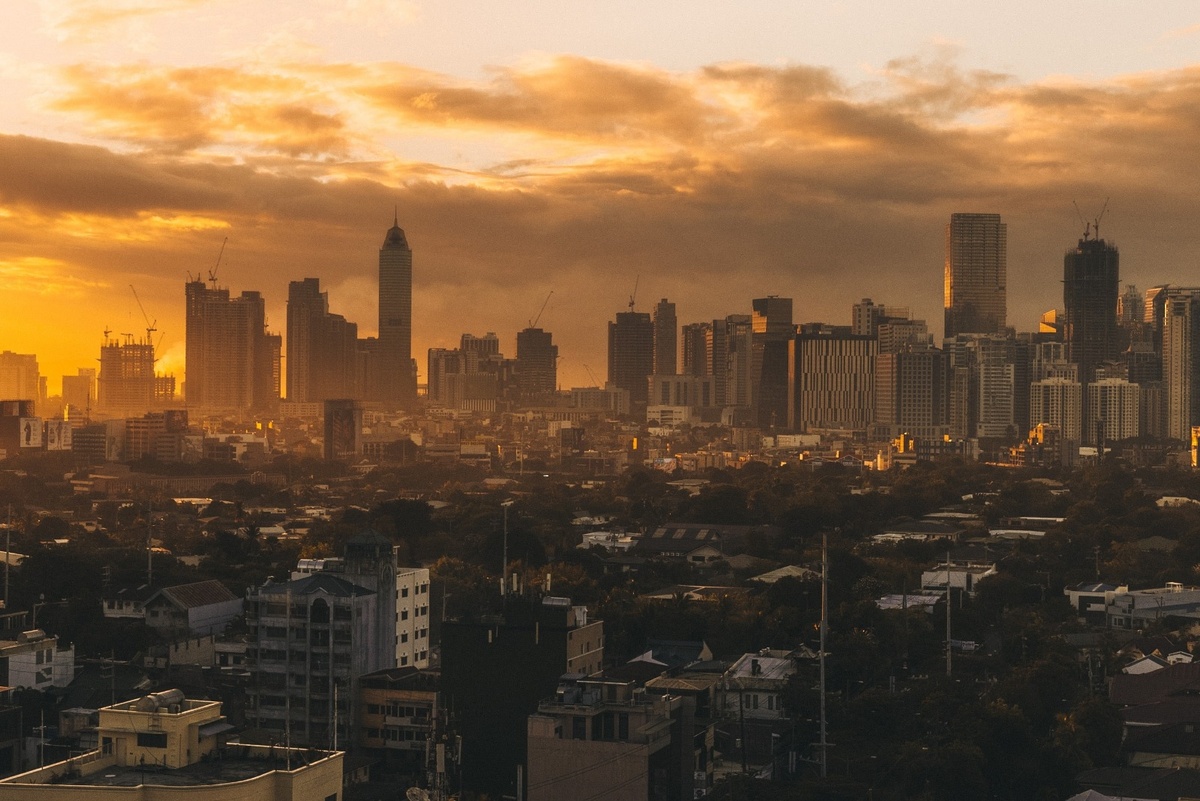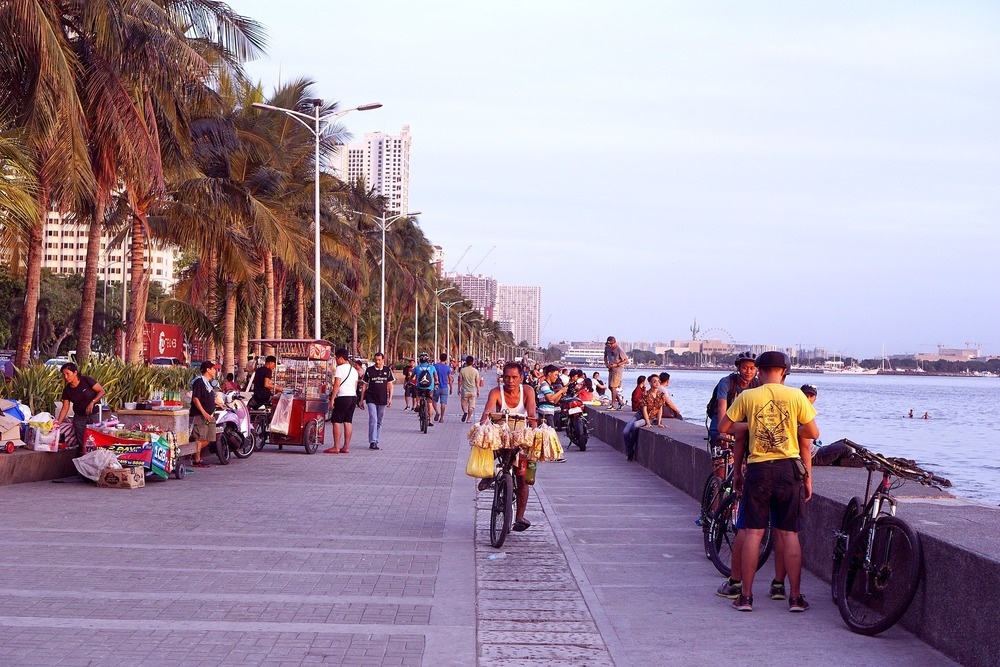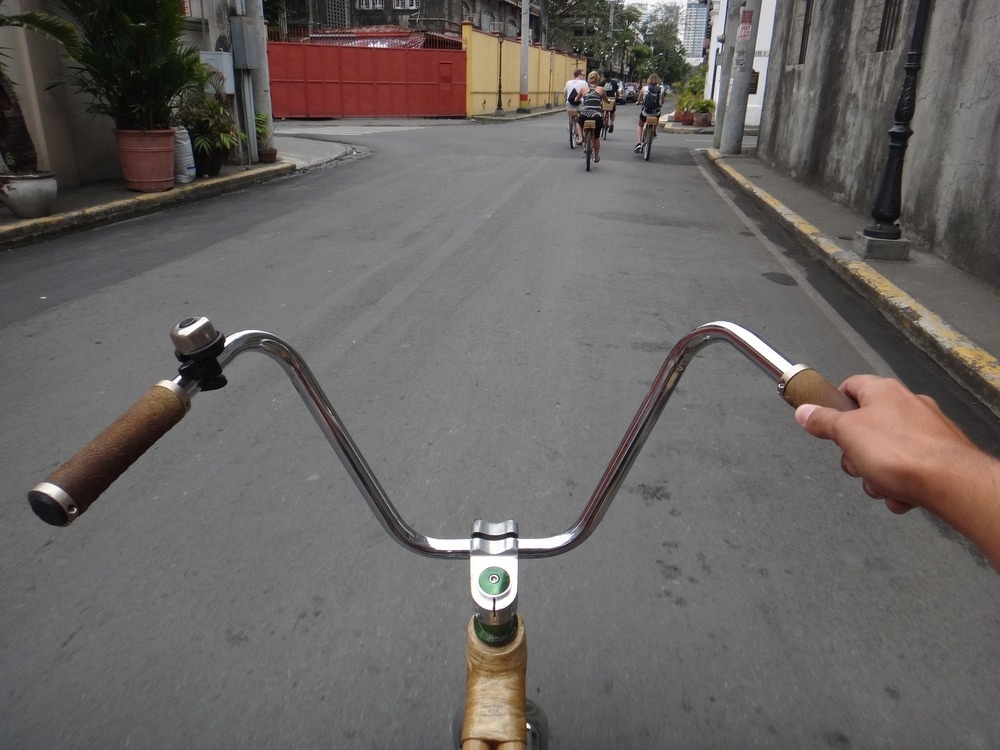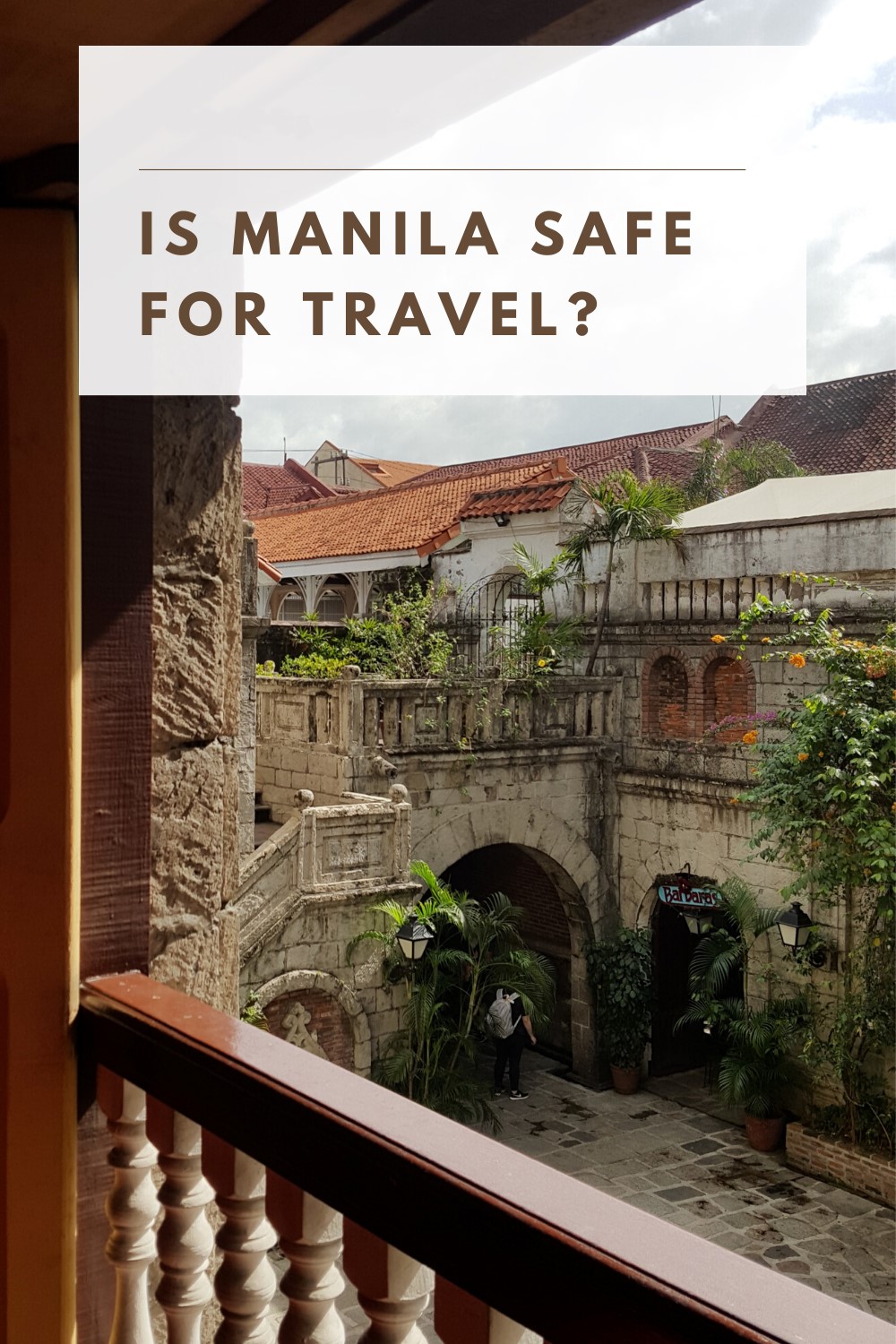Have a question?


Updated January 8, 2023
Manila is a safe destination — as long as you educate yourself on some safety issues. Locals helped us create this guide to staying safe in Manila.

One of the most densely populated cities in the world, Manila is a whirlwind of sounds, colors, and sights. It’s an immensely exciting place to visit in the Philippines — but travelers should be aware of some safety considerations.
Locals tell us:
With proper precautions, traveling to the Philippines is safe. But flying blind in a city like Manila can be a risk.
The U.S. State Department currently gives the Philippines a Level 2 Travel Advisory. This recommends that Americans “exercise increased caution.” For context, this is the same rating as other popular travel destinations, like Italy and France.
However, there are areas in the Philippines with a higher rating (i.e. considered less safe for travel).
The State Department recommends that Americans do not travel to:
And suggests that Americans reconsider travel to:
To make sure your travel to the Philippines is safe, be aware of some common scams. Locals tell us that these include:
As long as you take precautions and learn about certain scams like these, you should be fine.

The Philippines are safe for solo travelers — and so is Manila. Just like people traveling in groups, solo travelers will want to take certain precautions. Locals tell us that these are some things solo travelers in the Manila can do to keep safe:
Navigating a huge city like Manila can be intimidating — especially as a solo traveler.
The CDC recommends all travelers heading to the Philippines get shots for COVID, hepatitis A, hepatitis B, and typhoid.
Based on how long you are staying, however, or if you plan to explore rural areas, the CDC recommends additional vaccines.
No matter where you stay in the Philippines, it’s helpful to know a few key phrases. Knowing how to say hello and thank you goes a long way!
Here’s some good information to have on hand — just in case you need it:

How should we contact you?
Call
Thank you! We'll get back to you as soon as possible!
Click to register and track your question!
If you would like to follow up with us:
+1 (855) 782-3006